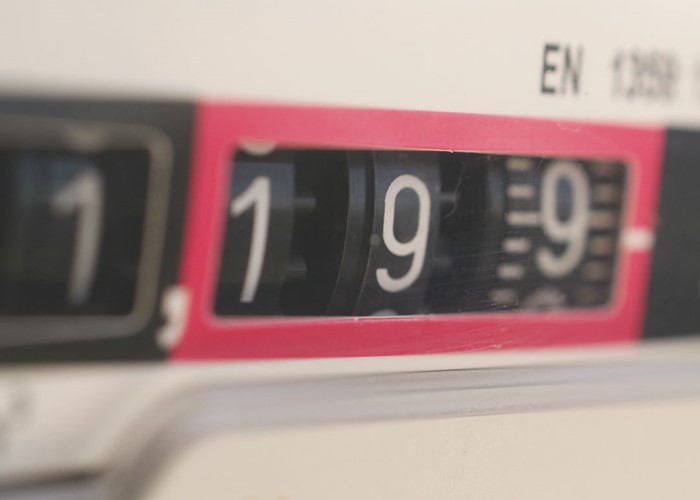Energy prices are about to rocket

Energy prices are set to jump over the next few months, so it's crucial that you assess the best options for gas and electricity providers, and change if you need to.
Scottish and Southern Energy (SSE) has announced that it is increasing its gas prices by 9.4% from 1st December, which will add a cost of around £67 to the average customer.
This is likely to be a sign of things to come. The major energy providers tend to follow one another when it comes to price rises and falls, so we all should expect the price of gas and electricity to rise over the next few months.
It may seem unfair to announce this price rise just before the start of winter, when people require energy (and especially heating) more than at any other time. But in some respects, the energy companies have little choice.
Wholesale gas prices are rising (up by more than 50 per cent since December 2009), and there’s only so much that companies themselves can absorb before the cost is passed on to consumers. SSE even admitted that its gas supply business, Southern Electric Gas, has been trading at a loss for several years.
So, what can customers do to get the best deal in this climate? There’s two main options. You can either try to find a better-value plan with a fixed tariff, or you can look at the market for plans with variable price tariffs, which are often substantially cheaper.
Variable price tariffs
Variable price tariffs are advantageous because of their added flexibility and low cost. They generally cost less than fixed tariffs, with the obvious proviso that you have less security (the rate could go up and down).
Here’s a table of the cheapest variable price tariffs. It’s based on the price for medium usage in my hometown in south Cheshire, paying through a monthly direct debit.
|
Supplier |
Tariff |
Key features |
Yearly spend |
|
iSave Dual Fuel v5 |
Unavailable in Paisley, Perth, N.Scotland & Isle of Wight |
£877 |
|
|
SaveOnline 4 (Dual Fuel) |
High service ratings. Manage your account online. Cancellation fees apply. |
£944 |
|
|
Online Energy Saver 11 |
Good service rating. Guaranteed discount until 31st Oct 2011. Cancellation fees apply. Paperless billing. |
£946 |
|
|
Sign On-Line 20 |
Manage your account online. Guaranteed discount on standard prices until Dec 2011. Cancellation fees apply. |
£953 |
|
|
Online S@ver v7 |
Good service rating/low level of complaints. Cancellation fees apply. A welcome bonus of up to £100 for new customers. |
£962 |
Source: lovemoney.com energy centre
John Fitzsimons explains why you could save a bundle by getting a new energy tariff today
Fixed price tariffs
John Fitzsimons explains why you could save a bundle by getting a new energy tariff today
The trouble with a variable tariff is that, when energy prices rise, so do your monthly bills.
If you don't like the sound of that, it might be worth considering getting a fixed tariff instead. That way, you'll be protected from this winter's price hikes.
Just be aware that, unlike most variable price tariffs, which give you the flexibility to switch to a new deal at any time, fixed tariffs are much more rigid. They generally have a set period in which you are obliged to stay with them, and if you decide to cancel the deal then you pay a hefty 'cancellation charge'.
So, before taking out a fixed tariff, you should always check the detail about the length of the contract and cancellation fees, as well as the rate itself.
Here are the best three options.
|
Supplier |
Tariff |
Key features |
Yearly spend |
|
New Energy Fixed |
Prices fixed for 12 months. Cancellation fees apply. 15% green electricity. |
£1,009 |
|
|
Fixed Price 3 |
Lowest levels of complaints in industry. 8.33% annual discount for direct debit customers. Prices fixed for 12 months. Cancellation fees apply. |
£1,013 |
|
|
Green Energy Fixed |
Prices fixed for 12 months. Cancellation fees apply. 100% green electricity. |
£1,053 |
Source: lovemoney.com energy centre
As you can see, you have to pay extra for the added security that you get with fixed price tariffs, compare with variable tariffs. So the cheapest figure for capped tariffs that I could get (with the same energy usage as above) is £1,009 a year, from Ovo Energy’s New Energy Fixed plan. That's around £100 more than the cheapest variable tariff.
Two final tips: Go for direct debit and combined payments!
You can save money from energy bills is by paying through direct debit, rather than by cash or cheque. This is because direct debits are cheaper for companies to process, and companies also prefer them because they give a better guarantee of payment. You can also save by combining gas and electricity payments instead of paying for both separately.
So, if you are looking for the best deal around, then you should go for a variable price tariff that combines gas and electricity, and which you pay for using monthly direct debit payments. Good luck!
More: Cheap energy tariffs are being withdrawn - hurry! I Get your lender to pay your energy bills
Comments
Be the first to comment
Do you want to comment on this article? You need to be signed in for this feature